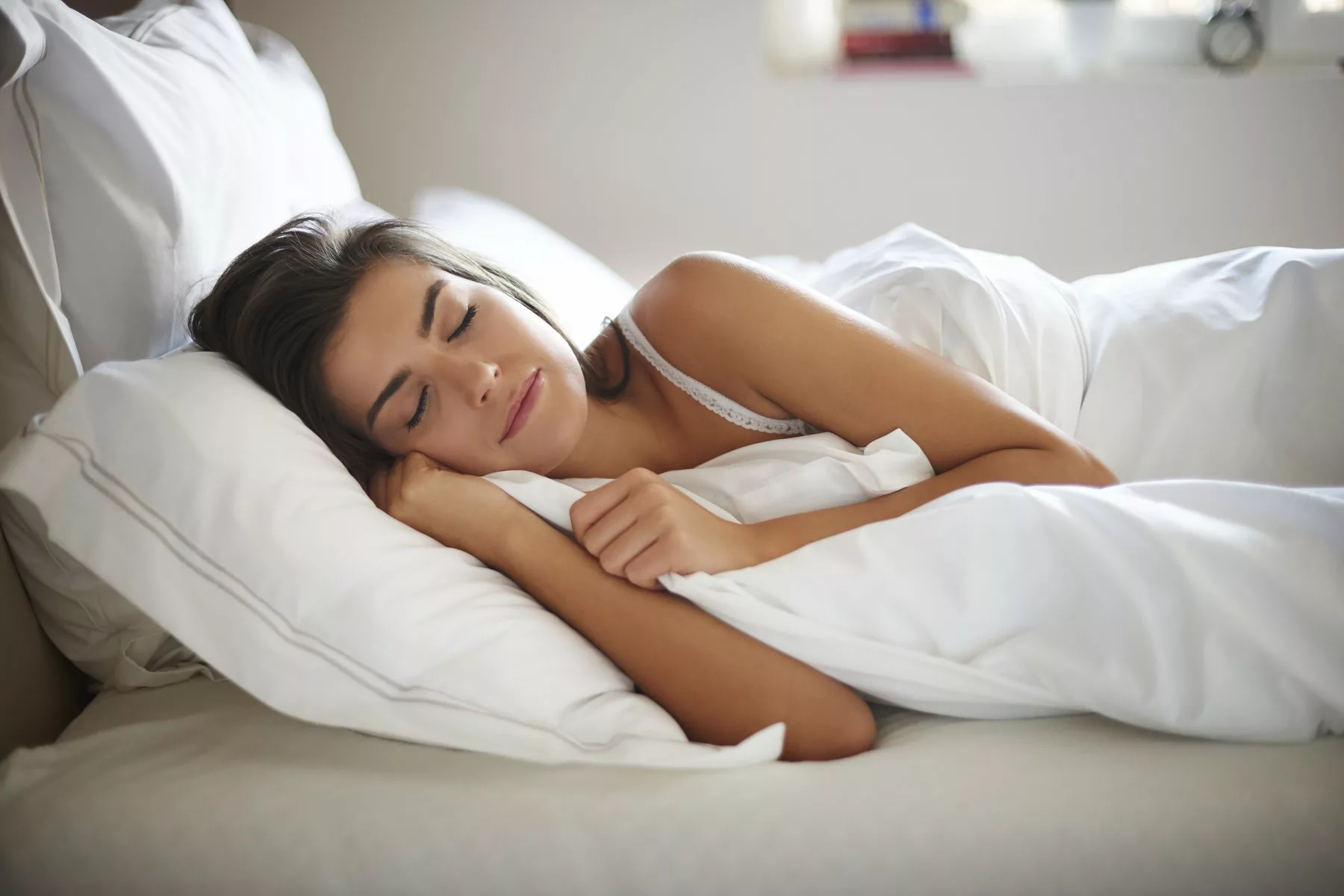
If you’re always waking up tired, you’re probably not getting enough NREM and REM sleep. NREM sleep is when the body repairs and regenerates tissues, builds bone and muscle, and strengthens the immune system. REM sleep is when the mind renews itself. When we get enough uninterrupted NREM and REM sleep, we wake up feeling rested, restored and rejuvenated. Remember Sleeping Beauty? She slept for 100 years. That’s a lot of NREM sleep cycles. No wonder she was beautiful … lol.
The amount of sleep a person needs depends on the individual. And it can depend on factors such as age. Infants usually require about 16-18 hours of sleep per day, while teenagers need about 9 hours per day on average. Most adults need about 7 to 8 hours of sleep per day.
If followed, these tips can greatly reduce fragmented sleep, and improve your odds of waking up rested, restored and rejuvenated:
– Try to establish a regular sleep pattern. To set and maintain your biological clock, go to sleep at approximately the same time every night. This generally allows you to wake up naturally without an alarm clock.
– Try to avoid waking up to an alarm clock. Clocks can wake you during NREM and REM sleep cycles, so avoiding alarms can improve sleep quality. In fact, you can buy an app atwww.sleepcycle.com, that analyses your sleep cycles and wakes you up in a light sleep phase, within a 30 minute window that ends at your set alarm time. The result is you wake up feel rested instead of disturbed.
– Make sure your room is dark. Close the curtains, and turn off the TV and all the lights.
– Have your last coffee before noon. Caffeine takes 11 hours to be broken down, so finishing your java before lunch can improve sleep quality.
– Avoid consuming alcohol up to 3 hours before bedtime. Your liver needs three hours to break down alcohol, so keep this in mind when drinking.
– Avoid large or heavy meals before bedtime. It’s harder to sleep on a full stomach. On the other hand, treat yourself to a light snack before bedtime. A high carbohydrate snack can boost the body’s production of serotonin and melatonin, which can calm the brain and trigger drowsiness in as little as 20 minutes. You might try a turkey or peanut butter sandwich, a small bowl of whole grain low sugar cereal, granola with low fat milk or yogurt, a banana and hot chamomile tea.
– Take an evening stroll. Walking around the block for 30 minutes after dinner can add 40+ minutes to your nightly slumber. That’s because gentle relaxing workouts a few hours before bedtime spur the release of serotonin, a hormone that helps you sleep through the night.
– Take a warm bath or read a book. The more relaxed you are when you go to bed, the better you’ll sleep.
– Wear loose fitting pajamas to bed. Make sure they’re comfortable and breathable.
– Keep your bedroom cooler. Ideal room temperature for sleep is between 16 to 18 degrees Celsius (65 and 75 degrees Fahrenheit).
– Avoid sleeping with pets. In a Mayo Clinic study, 53% of people who let pets sleep on their mattress reported sleep issues. Get your pets their own bed, and they’ll also sleep better.
– Don’t count sheep. according to Sleep researchers, people that visualize a sunny beach or lush garden, fall asleep 20 minutes sooner than those that count sheep.
– Use nightlights instead of regular lighting, for those times you need to get up at night. Melatonin production is what triggers the onset of sleep. Strong light signals the brain to stop producing melatonin and makes it more difficult to fall back asleep. A nightlight that’s strategically placed can prevent you from turning on lights that can stop your Melatonin production.
– Open the curtains on waking. Sunlight will signal the brain to stop producing melatonin, and allow you to wake up!
– Nap. Napping turns off your nervous system, recharges your body, and can pay back sleep debt. But time your siesta. Avoid late afternoon naps as these can shift your biological clock, which can then rob you of getting a full night’s sleep. Catch your ZZZs early in the afternoon when your body core temperature drops slightly … normally just after lunch. If possible keep naps under 30 minutes, as anything longer can result in your going into a deep sleep, which can potentially rob you of sleep you need at night. If however, you find you need more than 30 minutes, give yourself an hour and a half so that you complete a full sleep cycle.
– Sleep with the right pillow. Believe it or not, you may be nothing more than a pillow away from a better night’s sleep. As 17% of the spine is located in the neck, even the slightest strain on neck vertebrae can cause compression to spinal nerves that connect to your shoulders, arms, wrists, and fingers. This can cause pain in the neck, tightness and aching in your shoulders, wrist pain, tingling in your fingers, headaches and more.
– Now let’s talk mattresses. Next to breathing and eating/drinking, nothing is more essential to life than sleep. Without sleep the body and mind can’t repair themselves. That is why buying the “right” mattress, is more important than buying a Rs.50,000 TV. Unfortunately, when it comes to mattresses they’re not all the same. It’s what’s inside that determines how well you’re going to sleep, and how you’re going to feel when you wake up. So don’t short yourself when it comes to your mattress.
And if you’re sleeping on a great mattress with the right pillow and you’re not waking up feeling rested, restored, and rejuvenated, see your doctor, as you may have a medical condition or sleep disorder that’s interfering with you getting a great night’s sleep.
